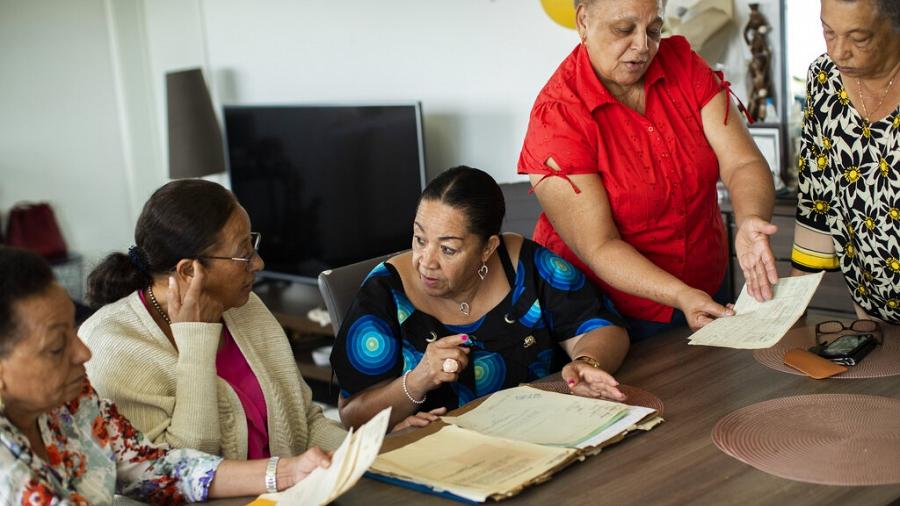5 Congolese women are taking Belgium to court on charges of crimes against humanity in a trial that started yesterday 14th Oct. 2021.
The five women—Lea Tavares Mujinga, Monique Bintu Bingi, Noelle Verbeken, Simone Ngalula, and Marie-Jose Loshi—suffered at the hands of the Belgian colonial state after being born in what is now the Democratic Republic of Congo to a Black mother and a white father in the late 1940s – DW
What would happen to biracial children in Congo?
Their story is very similar to several biracial children who were separated from their parents and placed in punitive religious institution. Their white colonial fathers refused to acknowledge them while their colonial powers forbade their existence and their integration into society.
If the children’s families refused to let them be taken, they would face harsh repercussions.

“During the colonial period, mixed-race children were considered a threat to the supremacy of the white race. It was [seen as] necessary to remove that threat,” the women’s lawyer Michele Hirsch said, speaking of a “generalized system” put in place by the Belgian state.
READ RELATED: Patrice Lumumba relics to be returned by Belgium’s King Phillipe
What happened to the 5 Congolese women taking Belgium to court for charges of crimes against humanity
The women report that they were abandoned as girls by Belgium after Congo achieved independence in 1960 and left to fend for themselves, falling into the hands of militia soldiers and enduring sexual abuse.
In 2019, the Belgian government apologised for taking thousands of children from their mothers in present-day Congo, Rwanda and Burundi. But the five women say it’s not enough. Monique Bitu Bingi told the AFP news agency: “We were destroyed. Apologies are easy, but when you do something you have to take responsibility for it.”
Source: DW, afp
